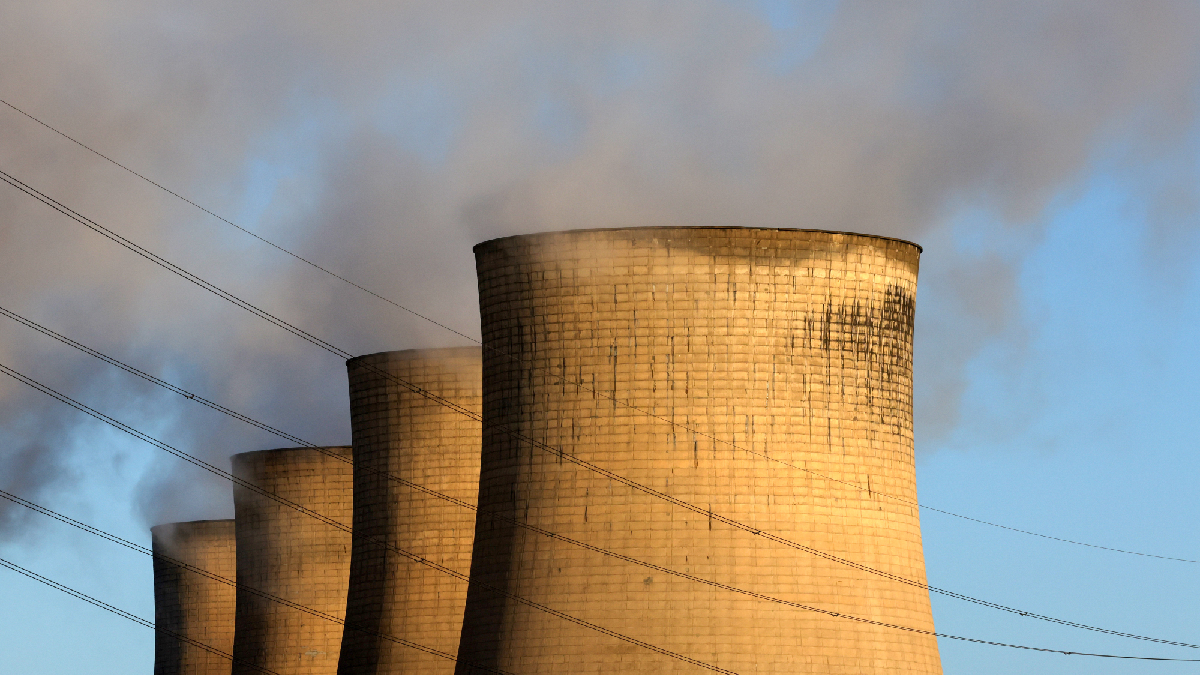A 'massive and unpredictable presence of jellyfish' has partially shut down one of Europe's biggest nuclear power plants with four out of six of its reactors taken offline

The Gravelines nuclear power station in northern France shut down several of its reactors last weekend due to an unusual problem—pumping stations in the non-nuclear part of the facility were clogged up with the 'massive and unpredictable presence of jellyfish.'
The jellyfish were said to be amassed within the filter drums of said pumping stations, causing a potential blocking hazard and forcing three of the six reactors to shut down, with a fourth being brought offline on Monday (via The New York Times). The operator of the plant, EDF, released a statement confirming that the unwanted jellyfish "had no impact on the safety of the facilities, the safety of personnel, or the environment."
Still, when it comes to nuclear power generation, I'd say better safe than sorry is the operative phrase. The reactors appear to have been automatically shut down as part of pre-existing safety protocols, and EDF has since begun the reconnection of two of the reactors back into the French national grid.
Many nuclear power plants use huge volumes of seawater to cool their reactors, which is pre-screened within pumping stations to prevent debris (or in this case, jellyfish) from gumming up the works. However, such a vast number appear to have been present within the Gravelines filtration system that the safety protocols kicked in to prevent potential cooling issues while the problem was rectified.
Speaking to the NYT, professor of biogeochemical cycles at the University of Bristol, Erica Hendy, said that dead jellyfish can also potentially "liquefy into a gel", passing through the filtration screens and causing deeper issues in the plant's systems.
Mmm, delicious jellyfish gel. The proliferation of vast numbers of jellyfish in the world's oceans is attributed to warming waters caused by climate change, which I've taken to be another sign of the coming apocalypse.
Anyway, ever-increasing numbers of jellyfish in our oceans are said to be responsible for a whole host of knock-on effects, including their vast consumption of plankton (damaging potential food sources for other marine life), their tendency to clog fishing nets, and their potential to ruin your next holiday with a painful jellyfish sting.
So much so, in fact, that some researchers (and chefs) have suggested we should be eating them in an attempt to curb their numbers. I mean, I'm game if you are. Jellyfish tempura, anyone?
It's also worth mention that, given AI data centers (and their associated massive power requirements) are now springing up in vast numbers, more nuclear power plants may be the way forward—which, combined with our current jellyfish issue, suggest this might be an ever-increasing problem in years to come.
Still, while many scientists are claiming we're currently in the middle of Earth's sixth mass extinction event, jellyfish appear to be thriving—and as a result, one of Europe's biggest nuclear power plants has had to pause its operations to clear the little blighters out. A butterfly flaps its wings, and a jellyfish... err... dangles its tentacles? Something like that, anyway.
What's Your Reaction?
 Like
0
Like
0
 Dislike
0
Dislike
0
 Love
0
Love
0
 Funny
0
Funny
0
 Angry
0
Angry
0
 Sad
0
Sad
0
 Wow
0
Wow
0











